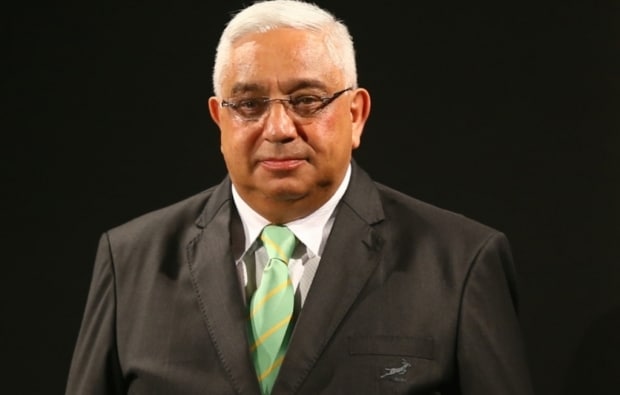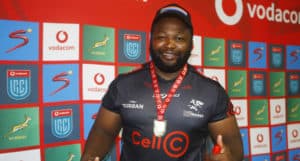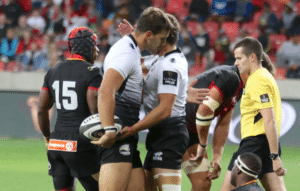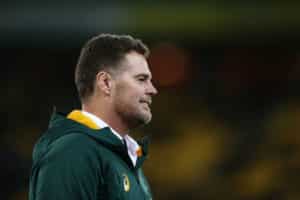SA Rugby president Mark Alexander believes the Boks can return to the No 1 ranking in world rugby.
In a statement released following SA Rugby’s annual general meeting in Cape Town on Thursday, Alexander reiterated SA Rugby’s vision to be the leading rugby nation.
‘Now is the time to take stock of our journey and recommit ourselves. We acknowledge that we have some way to go. We have made mistakes and we will not always get it right. But we have given South Africa moments of great joy and proved rugby’s supreme capacity to build our nation. Today, we must renew that journey.’
After losing eight out of 12 Tests last year, the Boks plunged to a lowly seventh place in the world rankings, and Alexander admitted that the ‘form of the Springboks in 2016 was at its lowest ebb since rugby unity in 1992’.
‘Let’s not beat about the bush: it turned out to be the toughest and most challenging year in a quarter of a century – both on and off the field..
‘The fortunes of our business are chiefly determined by one over-riding factor: the performance of the flagship team… The new era and new dawn we had all hoped for failed to materialise. But 2017 will be different.
‘We have now held three coaching and two conditioning indabas and developed a coaching blueprint bought into by all our Super Rugby coaches.
‘I would once again like to commend Johan Ackermann, Nollis Marais, Franco Smith, Deon Davids, Robert du Preez and Robbie Fleck for their fantastic co-operation, insight and support in this process. It has the potential to be truly game-changing for SA Rugby.’
He said that the Springboks’ management team had also been bolstered by the appointment of Smith and Brendan Venter – the latter in a consultancy role – while the rules about the selection of overseas-based players have been amended to encourage young players to remain in South Africa.
Alexander added that he hoped off-field changes, approved in December, would have a similar impact. Those changes include the opening of rugby to greater business influence, by allowing equity partnerships of up to 74% in the commercial arms of unions; the creation of a new fit-for-purpose committee structure, as well as an increase in independent representation on the executive council.
The roll-out of a 100-day plan has also addressed multiple issues, including a revision of domestic competitions; the preparation of a 2019 World Cup campaign plan; the development of a fan engagement strategy, and a new licensing model for participation in competitions.
Alexander said that transformation remains a critical item on rugby’s agenda, while still being optimistic that SA Rugby will receive clearance and receive government’s financial support to submit a formal bid to host the 2023 World Cup.
‘Hosting the World Cup for the second time in 28 years is imperative both for our game and our country,’ he said. ‘We offer World Rugby the chance to put on a highly profitable and unforgettable tournament in unbeatable stadiums and conditions. We have shown our hunger and passion for the tournament by bidding for the 2011, 2015 and 2019 events. We are ready.
‘Rugby belongs to the people of South Africa. It is a national asset and it has the power to build our nation. We will do it by being a winning team on and of the field. We will be the leading rugby nation.’
Photo: Steve Haag/Gallo Images





